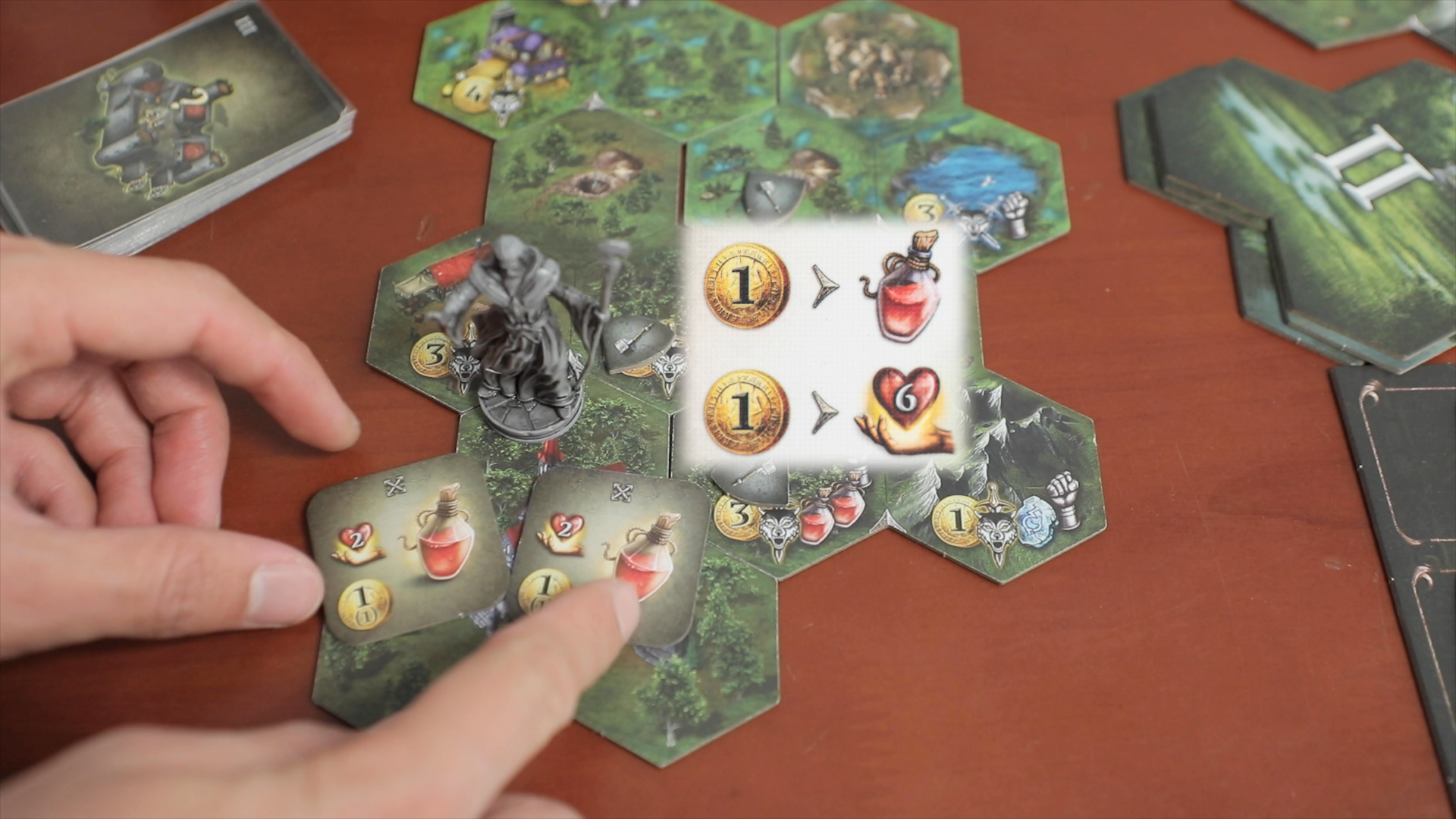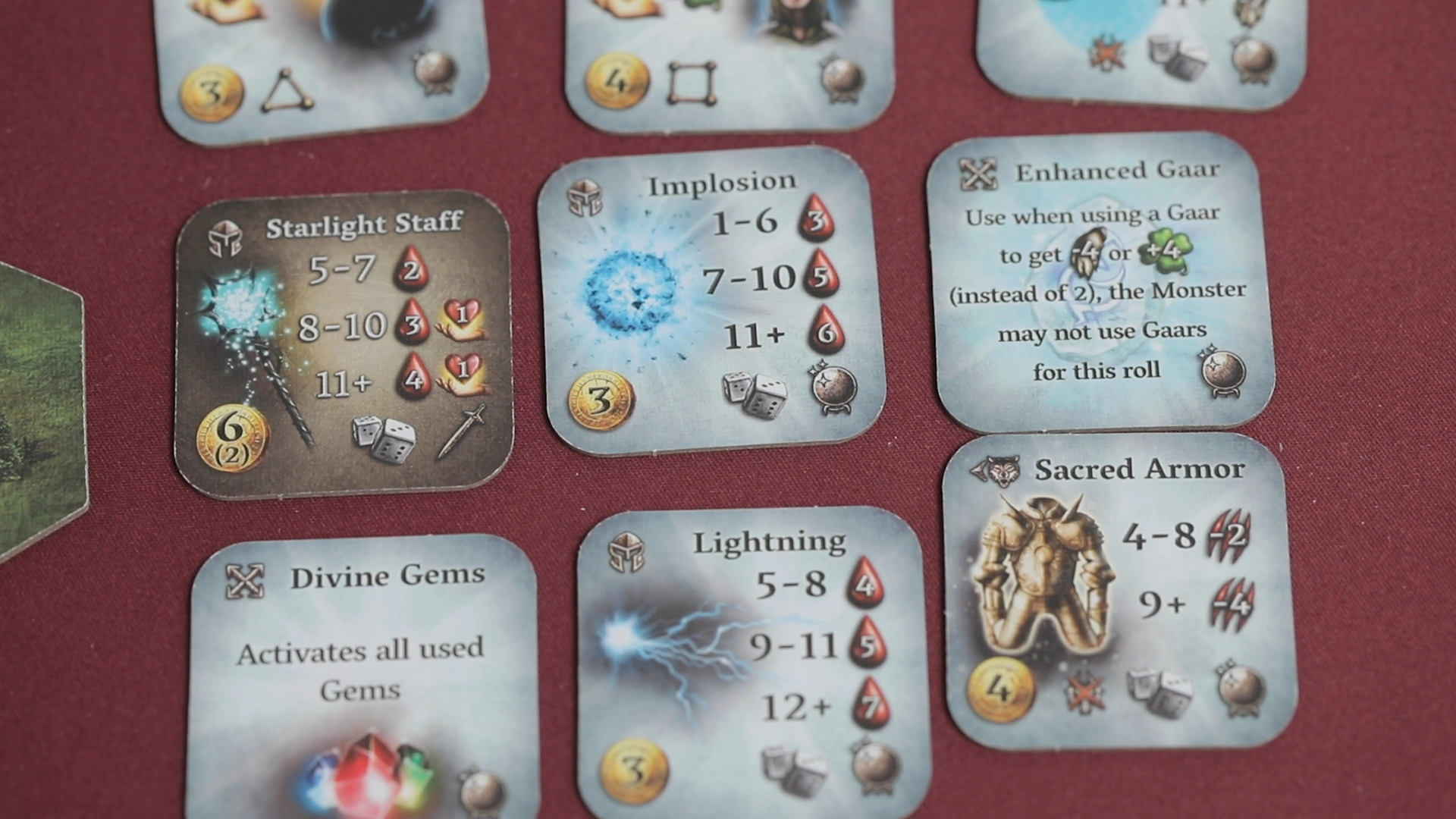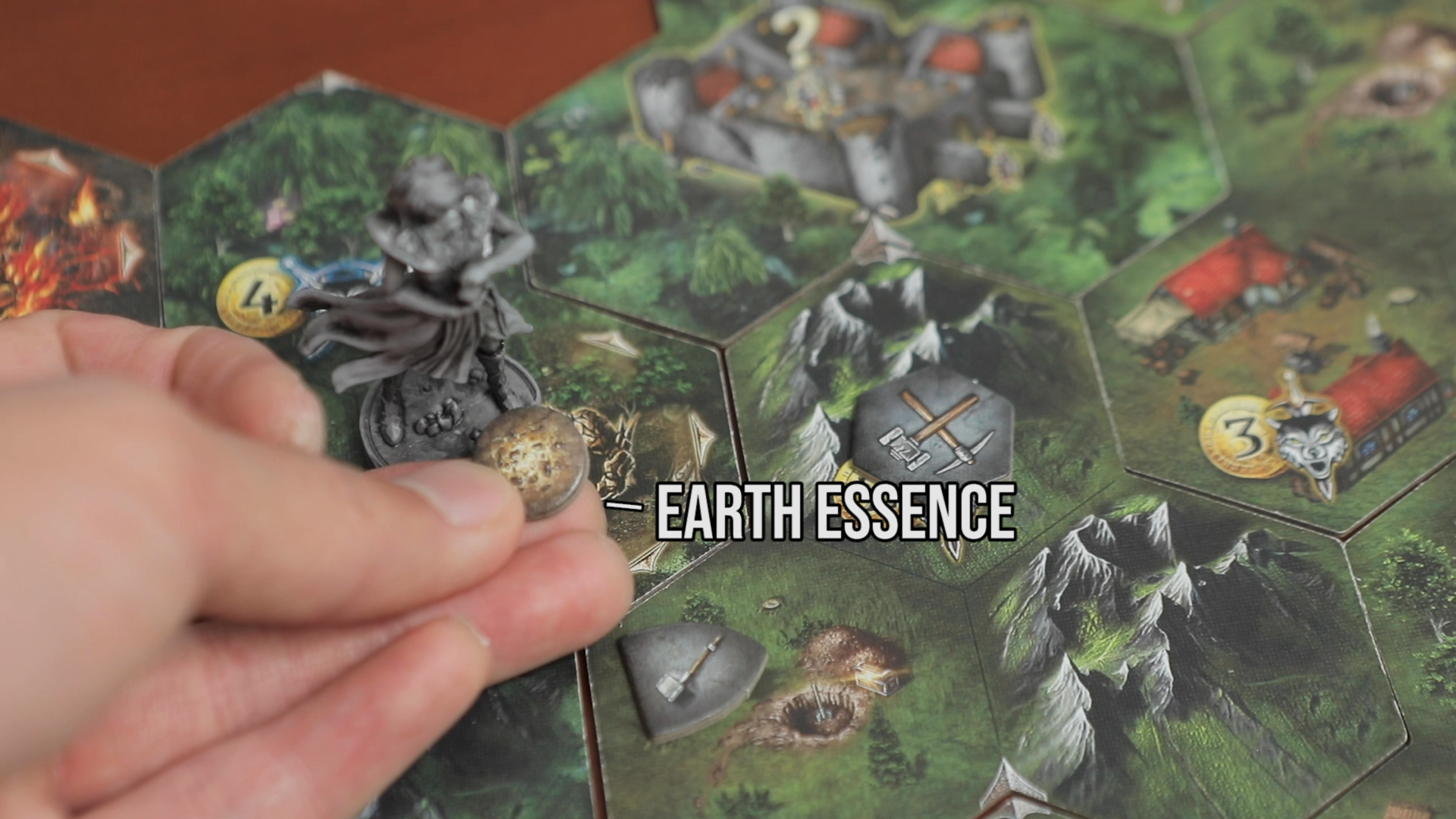Euthia: Torment of Resurrection Review
Old-School video game RPGs make their way to the table.
Explore the fantasy world of Euthia, maximizing damage to kill spiders to dragons, all within one competitive sitting. 1-5 hours, 1-4 players.
Video published September 19, 2022

Explore the land of Euthia past the beginning church.

Equip your fantasy character with diverse weapons, armor, and gems.

That's a whole lot of progression potential.
This is a sponsored review.
Overview & How to Play
Euthia. Utterly gigantic, not hard to play, but still crazy in scale nonetheless.
This Torment of Resurrection just has players trying to get the most reputation, which is like points, by the end of your scenario’s time limit of rounds.
To do that, you’re gonna go around the map, revealing new locations by just walking, fighting monsters, and of course, going to market to buy & sell goods.
Fighting monsters is resolved when you go a hex with that monster symbol, then roll a die to see what type of damage you and monster will do to each other. This has all sorts of modifiers, like re-rolling tokens called Gaars, or fist looking cards to be used by the monster controlling opponent to buff the monster temporarily.
This wouldn’t be a RPG without upgrades, so anytime you go into shop, you can buy all sorts of awesome items, including Health Pots which you can just chug during combat, but you can also train your hero. This is Euthia’s ‘leveling up’ bonuses, where you can unlock character specific items and abilities based off of reputation, which come on that’s basically like EXP in a video game.
Pros
This is big, but just doesn’t slouch with the graphic design: even the box looks great! What’s inside is quality components, and with the storage solutions in the Legendary 2 box, there’s plastic trays with lids, cloth bags, and S tier storage in cardboard towers for all the tiles.
As you port in with your fantasy character, like a Thief, or a fiery Mage, the map has interest everywhere, akin to a fairly developed world you’d find in a expansive video game RPG. There’s people asking you for quests to fulfill, all sorts of varied monsters holding mines and trading posts hostage, and even strong Elementals influencing the land!
Elementals are where you get Essences, one of the distinct upgrades to a character, where they will grant bonuses to be used once a round. This goes hand in hand with your character’s unique upgrades as they get more reputation, unlocking so many options: like letting you suddenly teleport around the map, or granting you a fresh new weapon.
Yep, the progression is Euthia’s strongest pull by far. It’s fast, as you start to unlock abilities as early as after the first fight, and start spending your hard earned money in town to buy more equipment. Better trading posts will get unlocked, all the way up to a Dragonslayer Tower, granting better equipment, that is if you can afford to buy them.
The combat starts evolving from a simple dice chuck, to a huge decision on what potions to use to clear inventory for later, what spell to cast, what essence(s) to use, what gem(s) to use, the list goes on and on with tiles abound.
But this is still a board game, so this progression is in a system of turns that also feels tight. Euthia is really putting the ‘strategy’ in strategic RPG here. There is kind of an infinite amount of options every turn with the giant map- you can go anywhere but your movement is limited.
Whether it be the character asymmetry, lots of differing spaces on the map, or just in-depth character leveling, there’s just so many different things to juggle to plan. Do you want to prioritize mining- well maybe you better get the Obsidian gem! If you wanna only kill monsters a lot, well maybe you should buy a lot of health pots! If you’re big on fulfilling the Encounter quests, well you better find a way to get your movement up.
Cons & Nitpicks
To start this all though, it isn’t anything like starting a video game. It’s just way too slow. When you first open the box, you can be really lost on what to do, because there’s just so much stuff, and you’re supposed to open all of it!
You know how in a video game, where you can hover over things to find out what they are? You can’t here, and that’s sorely missed. There is an included appendix, which is nice to explain the cards and tiles, but we wish there was something included to explain more parts on the game when we had confusion, like how confronting Elementals really worked, or how solo combat worked. There is no FAQ included.
Nitpicks begin with quests, where since movement is limited in a board game, spending effort to walk around the map and complete quests is just a complete toss up in payouts. Their placement on the unraveling board is also completely random, so while some are good and add flavor, others just feel like an unnecessary blip on the board.
Also, the dynamic between players is odd, because Euthia is sometimes being too thinly stretched bewteen competitive and cooperative. Competitive because you’re all looking out to maximize your score. But also frequently cooperative because you can’t ever actually attack each other, you can use each other’s spaces for the cost of just one gold- ok that’s basically nothing mid-late game, and at least 4 of the scenarios require you to team up at the end against a big boss.
It shouldn’t come as much surprise that Euthia is best as a solo game, especially because the printed time frames are not really valid. An hour per player, is more like 1.5-2 hours per player. And setup/takedown can add at least 30 minutes onto that.
We still have no idea on balance, given the sheer size of this game, but hey, Euthia fans aren’t playing this to be competitive: rather to just revel in the massive sandbox that this is. You didn’t play old school RPGs for interaction anyways.
















